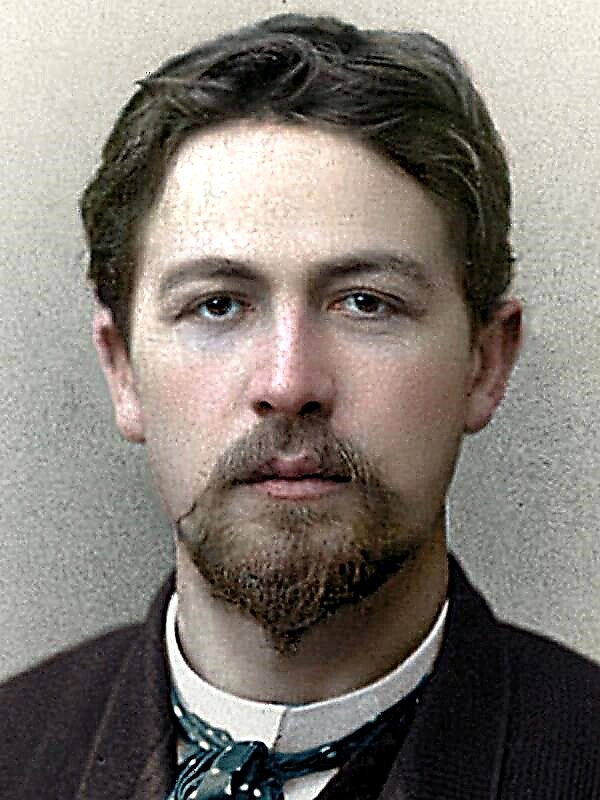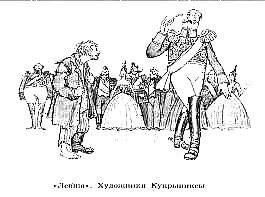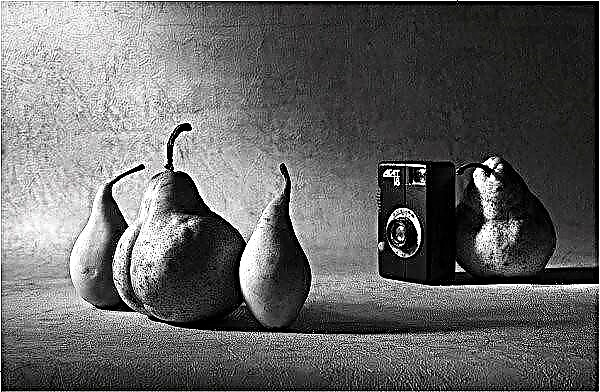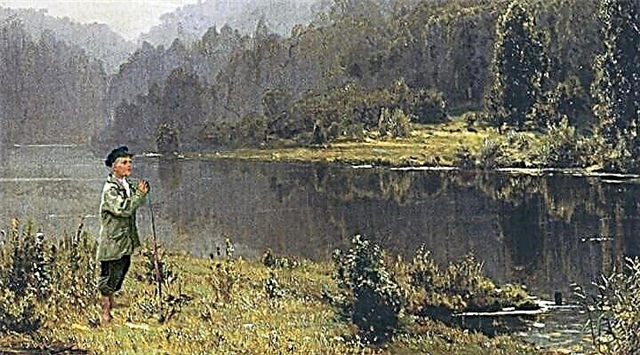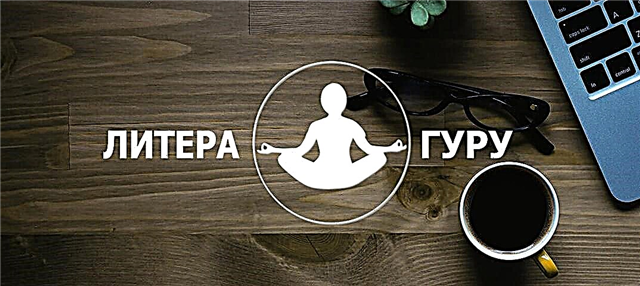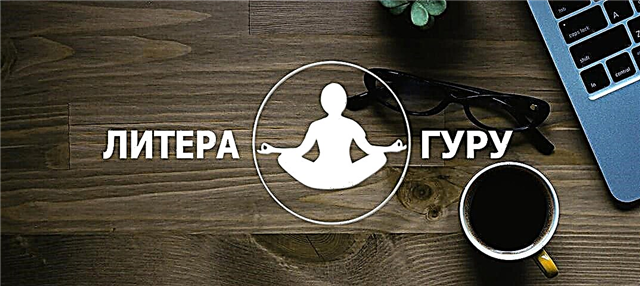After graduating from the Kiev Academy, two of his sons, Ostap and Andriy, came to the old Cossack colonel Taras Bulba. Two dozen young men, whose razor has not yet touched their healthy and strong faces, are embarrassed by the meeting with their father, who has been joking at their clothes by recent seminarians. The eldest, Ostap, can’t stand his father’s ridicule: “Though you are my dad, and by the way you laugh, by God, I’ll shove!” And father and son, instead of greetings after a long time away, quite seriously tuff each other in cuffs. A pale, thin and kind mother tries to reason with her exuberant husband, who is already stopping himself, glad that he has experienced a son. Bulba wants to “greet” the younger one in the same way, but his mother is already embracing him, protecting him from his father.
On the occasion of the arrival of the sons, Taras Bulba convenes all the centurions and the entire regimental rank and announces his decision to send Ostap and Andriy to the Sich, because there is no better science for the young Cossack, like the Zaporizhzhya Sich. At the sight of the young strength of the sons, the military spirit of Taras himself flares up, and he decides to go with them to introduce them to all his old comrades. The poor mother sits over the sleeping children all night, not closing her eyes, wishing that the night lasts as long as possible. Her lovely sons are taken from her; they take it so that she will never see them! In the morning, after a blessing, a desperate mother is barely torn from her children and taken to a hut.
Three riders ride silently. Old Taras recalls his exuberant life, a tear is frozen in his eyes, his gray-haired head is down. Ostap, having a harsh and hard character, although hardened over the years of training in a bursa, retained his natural kindness and was moved by the tears of his poor mother. This alone confuses him and makes him lower his head thoughtfully. Andriy is also very upset by his farewell to his mother and his family home, but his thoughts are occupied with the memories of the beautiful Polish girl who he met just before leaving Kiev. Then Andriy managed to get into the bedroom to the beauty through the chimney pipe, knocking on the door forced the Polish girl to hide the young Cossack under the bed. Tatar, the maid of the panel, as soon as the anxiety passed, brought Andria to the garden, where he barely escaped from the awakened courtyard. Once again he saw the beautiful Pole in the church, she soon left - and now, with his eyes down in the mane of his horse, Andriy is thinking about it.
After a long journey, Sich meets Taras with his sons with his wild life - a sign of the Zaporizhzhya will. Kozaki do not like to spend time on military exercises, collecting abusive experience only in the heat of battle. Ostap and Andriy rush with all the ardor of the young men into this wild sea. But old Taras does not like an idle life - he does not want to prepare his sons for such an activity. Having met with all his companions, he comes up with how to raise the Cossacks on a campaign, so as not to spend the Cossack boldness on a continuous feast and drunken fun. He persuades the Cossacks to re-elect a koshov who keeps peace with the enemies of the Cossacks. The new koshova, under the pressure of the most warlike Cossacks, and above all Taras, decides to go to Poland to mark all the evil and shame of faith and Cossack glory.
And soon the entire Polish south-west becomes the prey of fear, running ahead of hearing: “Cossacks! Cossacks appeared! ” In one month, young Cossacks matured in the battles, and old Taras is pleased to see that both of his sons are among the first. The Cossack army is trying to take the city of Dubna, where there are many treasuries and wealthy inhabitants, but they are met with desperate resistance by the garrison and residents. Kozaki besiege the city and wait for the famine to begin in it. From nothing to do, the Cossacks devastate the surroundings, burn out defenseless villages and uncleaned bread. Young people, especially the sons of Taras, do not like such a life. Old Bulba calms them, promising in a short time hot fights. On one of the dark nights, Andria wakes up from a dream a strange creature that looks like a ghost. This is a Tatar, a servant of that same Polish woman, with whom Andriy is in love. Tatarka whispers that the little girl is in the city, she saw Andria from the city rampart and asks him to come to her or at least pass a piece of bread for her dying mother. Andriy loads the bags with bread as much as he can carry, and the Tatar leads him into the city along the underground passage. Having met with his beloved, he renounces his father and brother, comrades and fatherland: “The fatherland is what our soul is looking for, which is sweeter for it all. My homeland is you. ” Andriy remains with a little panel to protect her until her last breath from her former companions.
Polish troops, sent as reinforcements to the besieged, pass into the city past drunken Cossacks, many who were killed by sleeping, many were captured. This event toughens the Cossacks, deciding to continue the siege to the end. Taras, looking for the missing son, receives terrible confirmation of Andriy's betrayal.
The Poles make sorties, but the Cossacks still successfully beat them off. From Sich comes the news that, in the absence of the main force, the Tatars attacked the remaining Cossacks and captured them, capturing the treasury. The Cossack army near Dubna is divided in two - half goes to the revenue of the treasury and comrades, half remains to continue the siege. Taras, leading a siege army, delivers a passionate speech in the glory of the partnership.
The Poles learn about the weakening of the enemy and come out of the city for a decisive battle. Among them is Andrius. Taras Bulba orders the Cossacks to lure him to the forest and there, meeting with Andriy face to face, kills his son, who, before his death, pronounces one word - the name of the beautiful little lady. Reinforcements arrive at the Poles, and they defeat the Cossacks. Ostap is captured, wounded Taras, saving from the chase, is brought to Sich.
Having recovered from his wounds, Taras makes big money and threats forcing the Jew Jankel to smuggle him to Warsaw in order to try to buy Ostap there. Taras is present at the terrible execution of his son in the city square. Not a single moan escapes under torture from Ostap’s chest, only before death he cries out: “Old man! where are you! do you hear all this? ” - “I hear!” - Taras answers over the crowd. They rush to catch him, but Taras has already caught a trace.
One hundred and twenty thousand Cossacks, including the Taras Bulba regiment, set off against the Poles. Even the Cossacks themselves notice the excessive ferocity and cruelty of Taras in relation to the enemy. So he takes revenge for the death of his son. The defeated Polish hetman Nikolai Pototsky swore an oath not to inflict any further offense on the Cossack army. Only Colonel Bulba does not agree to such a world, assuring his comrades that the requested Poles will not keep their word. And he takes his regiment away. His prediction comes true - having gathered strength, the Poles treacherously attack the Cossacks and smash them.
And Taras walks all over Poland with his regiment, continuing to avenge the death of Ostap and his comrades, ruthlessly destroying all life.
Five regiments led by that same Pototsky finally overtake the Taras regiment, which had taken a rest in an old decaying fortress on the banks of the Dniester. The battle lasts four days. The surviving Cossacks make their way, but the old chieftain stops to look for his cradle in the grass, and his healers overtake him. Taras is tied to the oak tree with iron chains, nailed hands and laid a fire under it. Before his death, Taras manages to shout to his comrades so that they go down to the canoes, which he sees from above, and leave the pursuit along the river. And at the last terrible minute, the old chieftain thinks about his comrades, about their future victories, when old Taras is no longer with them.
The Kozaks go away from the chase, together row with oars and talk about their chieftain.

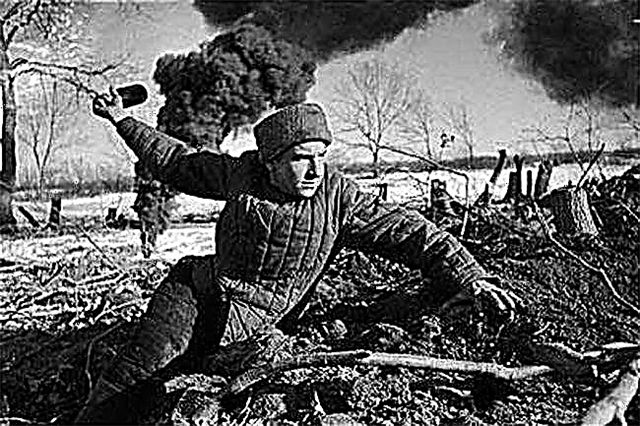
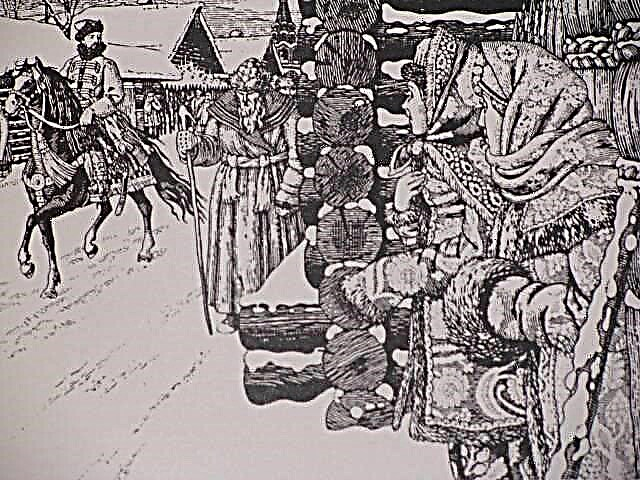
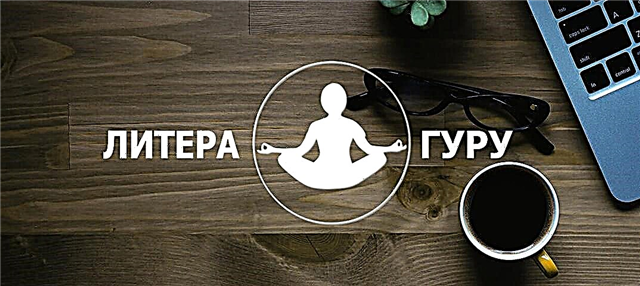
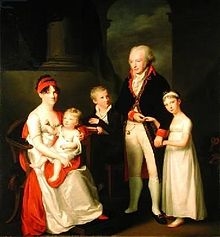
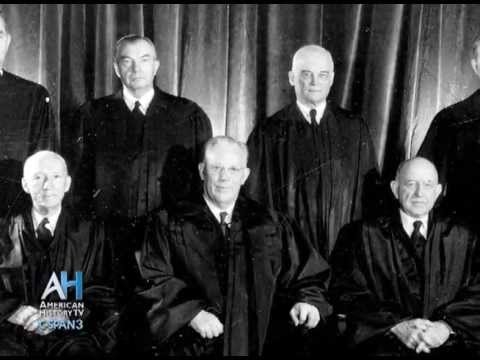 Junkie
Junkie